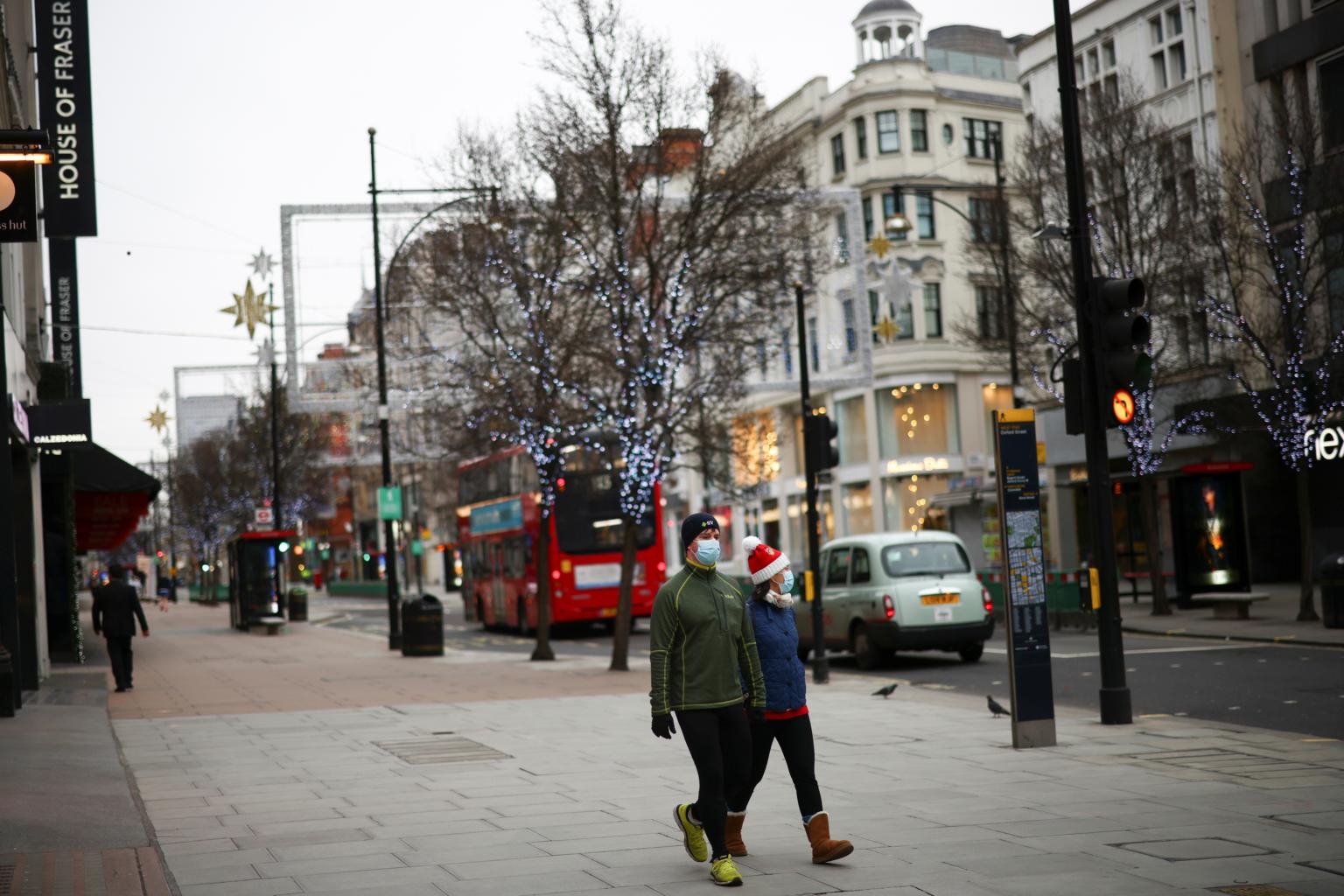Countries ban travel from Britain as cases of new Covid-19 strain grow around the world
Sign up now: Get ST's newsletters delivered to your inbox

The spread of the virus and its mutations come as the European Union tees up a vaccine rollout.
PHOTO: REUTERS
Follow topic:
PARIS (AGENCE FRANCE-PRESSE, REUTERS, BLOOMBERG) - More than 50 countries have imposed travel restrictions on Britain in a bid to stop the spread of a new, more infectious strain of the coronavirus that has now been found in France and Spain and even as far as Japan.
Several others including Denmark, Lebanon, Germany, Australia and the Netherlands have also reported cases of the new strain of Covid-19, which has sent jitters through already overstretched health services.
From Dec 28, the United States will require passengers flying from Britain to show proof of a negative Covid-19 test no more than 72 hours before departure, the US Centres for Disease Control and Prevention said.
The CDC last week said Britain's new Covid-19 variant could already be circulating in the US undetected. Early analysis of the mutated strain suggests it may be as much as 70 per cent more transmissible than other circulating strains.
Norway extended its ban on flights from Britain until Dec 29, the health ministry said on Friday.
"It's still possible that the flights will be suspended until after the New Year," the ministry said.
In France, authorities have reopened borders to Britain but instituted a testing policy, after a snap 48-hour ban.
For now, only French or EU citizens, those with residency rights there or business travellers are allowed to make the crossing from Britain - if they provide proof of a negative Covid-19 test less than three days old.
The easing of restrictions was aimed at allowing French citizens to return home as well as to relieve a massive build-up of freight goods.
The interior ministry said limits on travel from the Britain would continue "until at least Jan 6".
Regions from Hong Kong to Canada have temporarily suspended travel from Britain.
Hong Kong also banned all recent travellers from South Africa - where another Covid-19 strain has been found in some infected people - and extended a mandatory quarantine for most other overseas arrivals to 21 days.
Britain itself has imposed curbs on arrivals from South Africa.
South Africa, meanwhile, pushed back against claims that its strain is more infectious or dangerous than the one from Britain.
While Britain's virus variant has a mutation occurring at a site common with the South African strain, they are "two completely independent lineages," South Africa's Health Minister Zweli Mkhize said.
More cases detected
Around the world, countries are starting to find Britain's new Covid-19 variant on their shores.
France reported its first case of the variant late on Friday, found in a citizen living in Britain, who arrived from London on Dec 19.
The French health ministry said he was asymptomatic and self-isolating at home in Tours.
In Spain, four cases of the British variant were confirmed in Madrid yesterday. The patients were "not seriously ill", the Madrid regional government's deputy health chief Antonio Zapatero said.
Sweden detected the British variant in a traveller from Britain, its health agency said yesterday, while Italian authorities also found an infected patient in Rome.
In Japan, five people who entered the country from Britain were confirmed to have the mutated form of the virus, Japan Times reported on Friday.
Two of them arrived at Tokyo's Haneda airport while the remaining three at Kansai International Airport in Osaka.
The World Health Organisation said cases of the British strain have also been found in Denmark, the Netherlands and Australia.
EU vaccine rollout
The spread of the virus and its mutations come as the European Union tees up a vaccine rollout.
The pandemic has now claimed more than 1.7 million lives, but the launch of inoculation campaigns around the world boosts hopes that 2021 may bring a respite.
The first doses of the Pfizer-BioNTech vaccine arrived in Italy, Spain and France yesterday ready for distribution to elderly care facilities and hospital staff.
"We'll get our freedom back, we'll be able to embrace again," Italian Foreign Minister Luigi Di Maio said, urging people to get the shot.
Vaccinations in all 27 European Union countries will start today.
The WHO called on people to respect social distancing guidelines so as not to "squander" the "great, heart-wrenching sacrifices" others had made to save lives.
"Vaccines are offering the world a way out of this tragedy. But it will take time for the whole world to be vaccinated," WHO chief Tedros Adhanom Ghebreyesus said.

